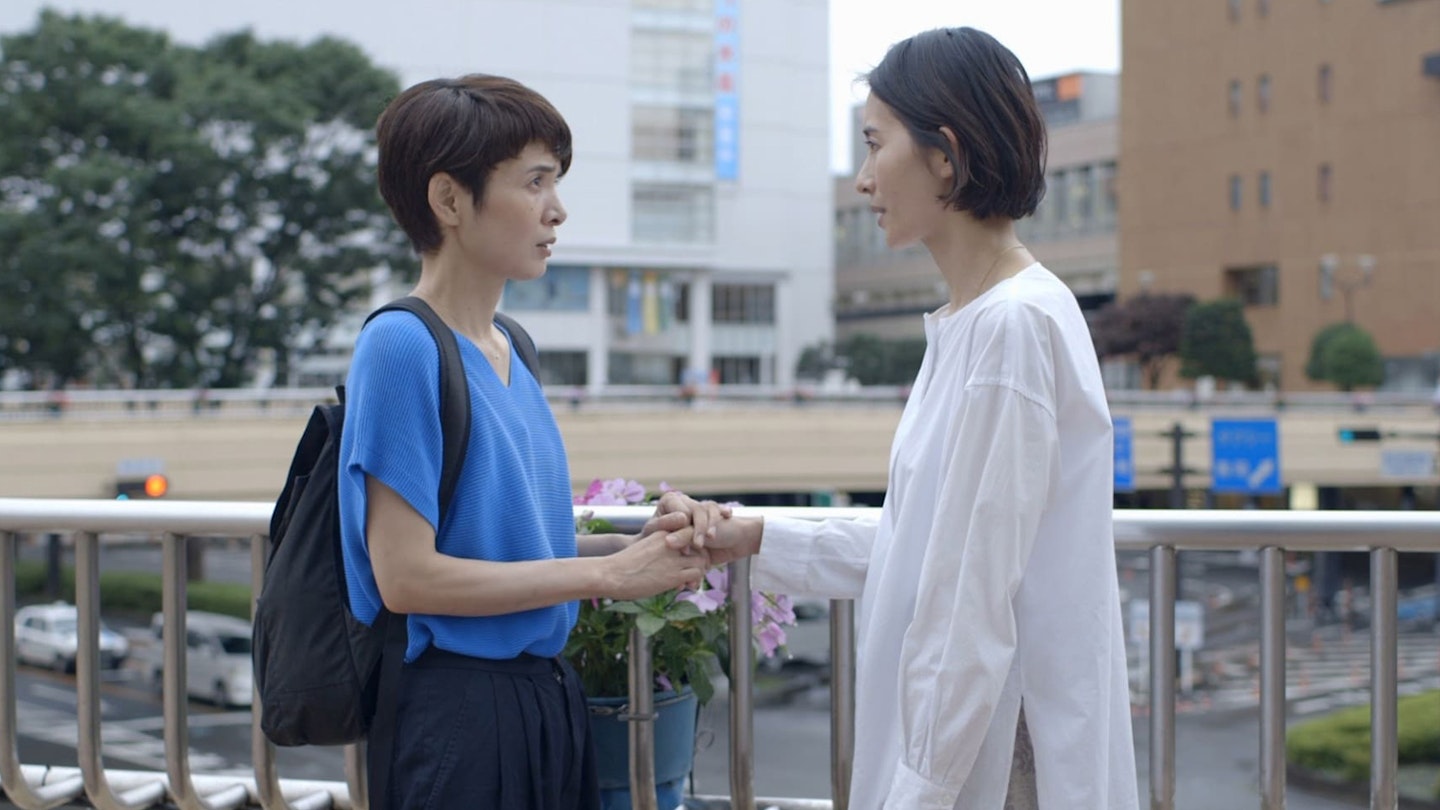After the quietly sweeping Drive My Car, Ryûsuke Hamaguchi has weaved another gentle and powerful web of human intimacy, with compassionate triptych Wheel Of Fortune And Fantasy.
The first story, ‘Magic (Or Something Less Assuring)’, features model Meiko (Kotone Furukawa), navigating a complex romantic struggle through meetings in a cab, an office and a coffee shop. Hamaguchi has a theatrical approach to conversation, here and throughout. In extended takes, the frame seems to dissipate, leaving only the actors, as if on stage, powerfully luring us into their reality, through only words and performance. It’s refreshing, simple and compelling. And when one of the most basic cinematic techniques — a close up — assuringly occurs, it’s captivating.

‘Door Wide Open’, the second story, features the attempted seduction of an academic (Kiyohiko Shibukawa) by his former student (Katsuki Mori), and similarly applies this elegant, uncomplicated staging. This entry is both salacious and warm-hearted. Despite conducting conversations about masturbating to voice-notes, protagonist Nao is given no scarlet letter, only support and understanding. It’s emblematic of the reassuring humanity that extends through the film, and across into part three, ‘Once Again’.
Whilst the narratives might seem soapy, within their heightened worlds are ambitious and emotionally rich tales.
In one of the film’s rare missteps, this story occurs at a time when a virus has destroyed all virtual communication, and this added high concept unnecessarily draws curiosity away from the enchanting two-hander premise. After a brief encounter at a train station, Moka (Fusako Urabe) and Nana (Aoba Kawai) go from strangers, to old friends, to neither, and then to something else entirely, in a charming and exceedingly moving reverie that’s in no need of superfluous world-building.
These slight tales don’t reach Hamaguchi’s previously realised emotional depth. However, whilst the narratives might seem soapy, within their heightened worlds are ambitious and emotionally rich tales that, via precise dialogue and gentle performances, ever so delicately, almost invisibly, unravel the almighty value and power of making human connections.
